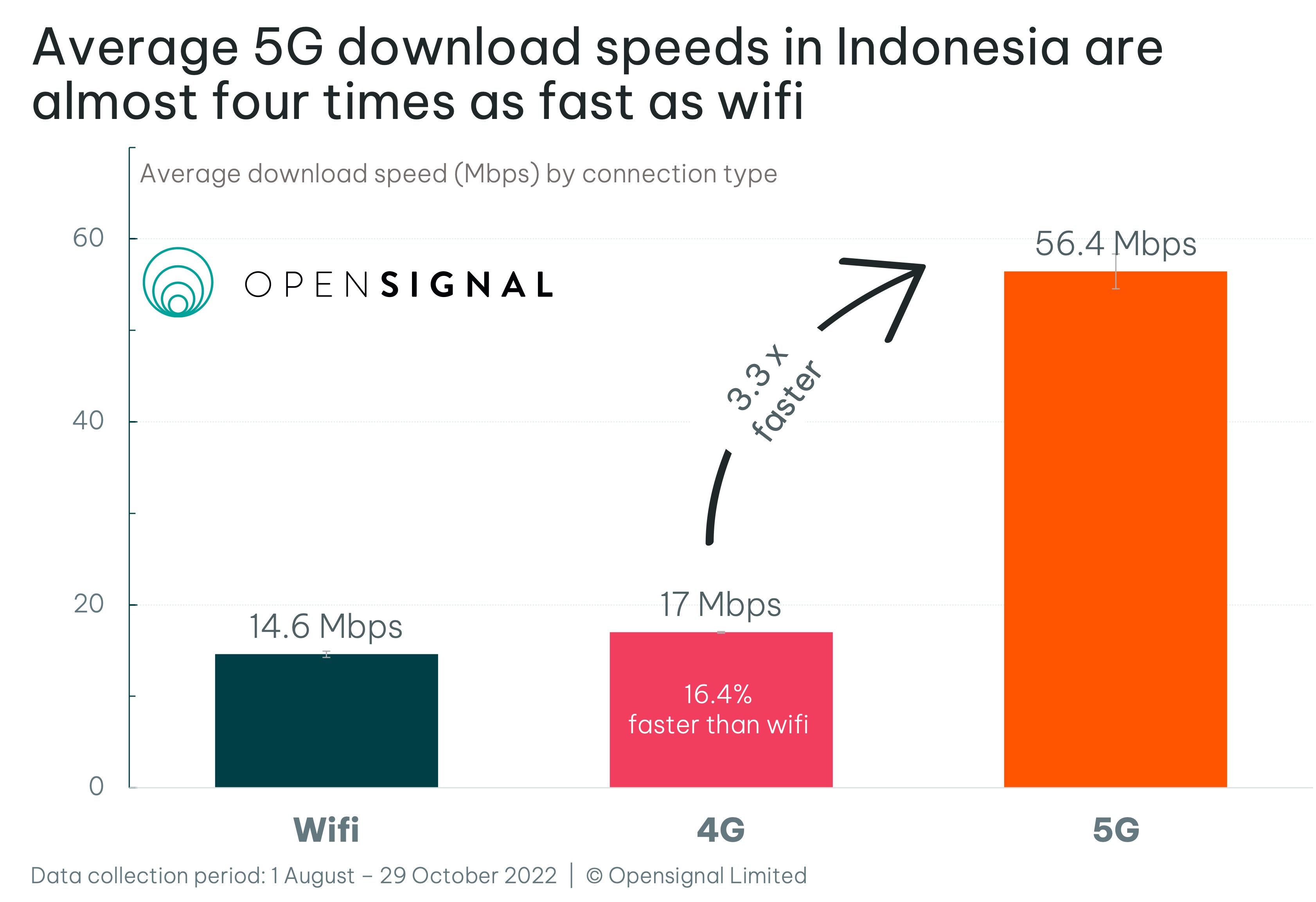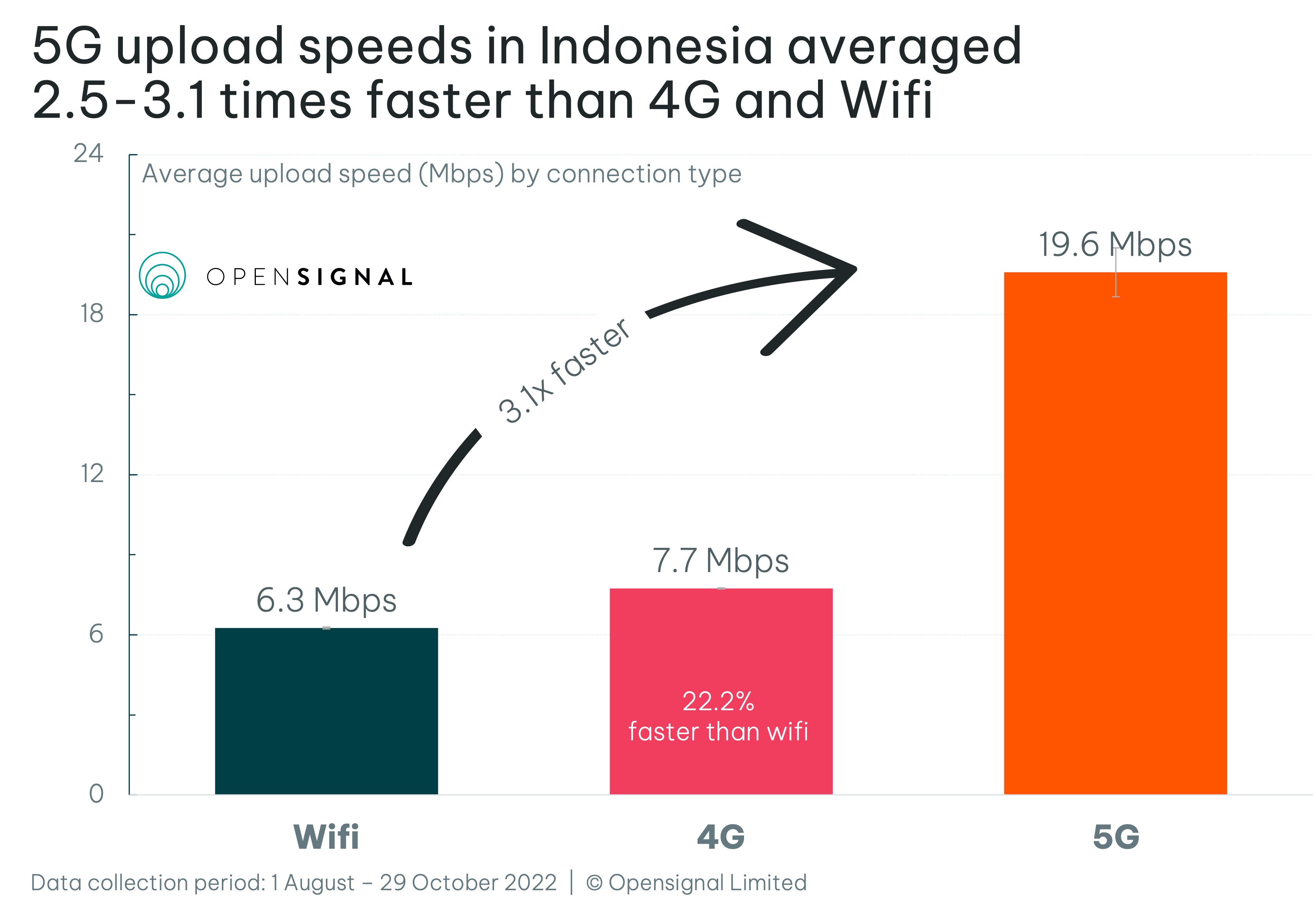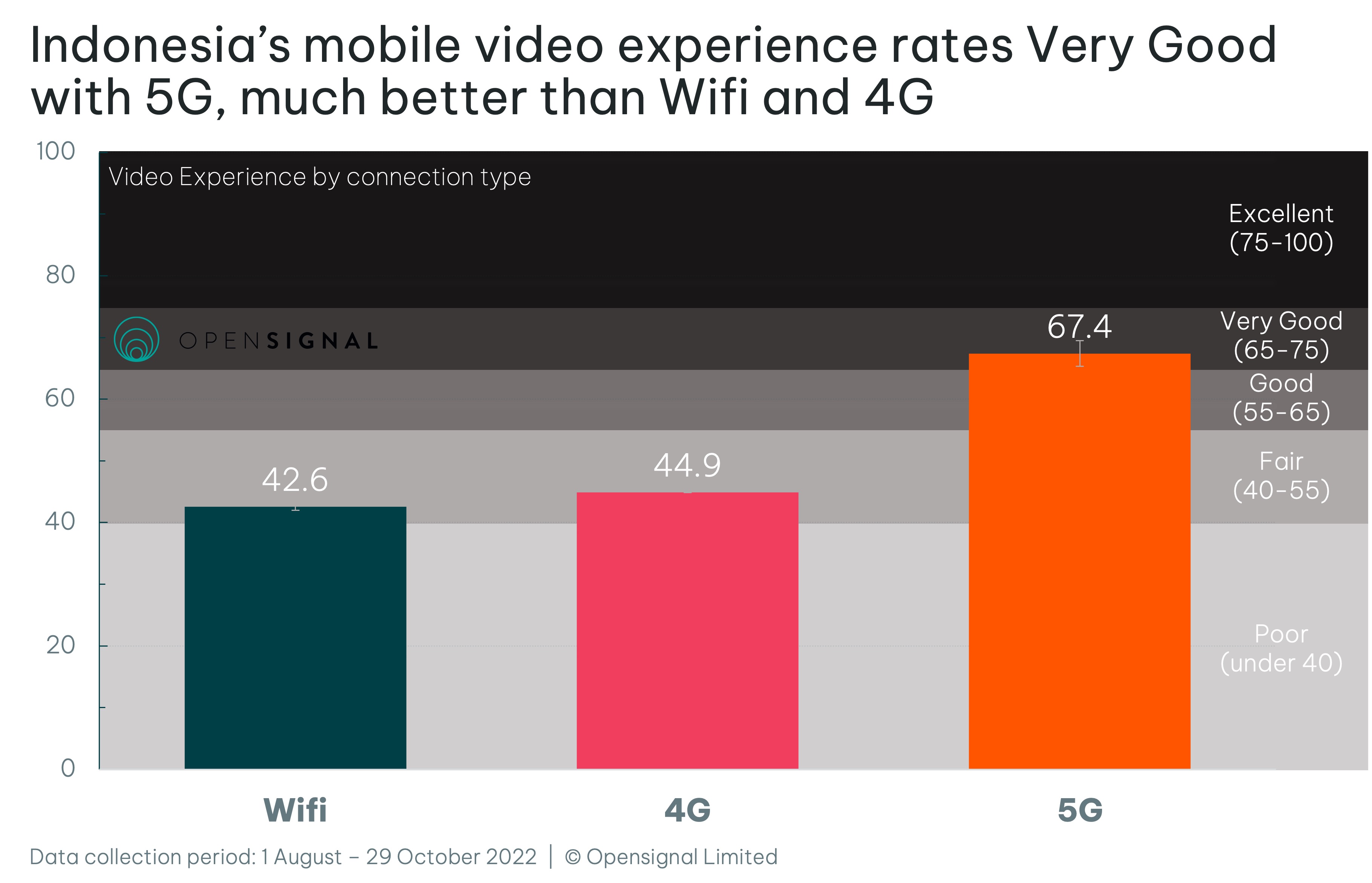Opensignal's latest analysis shows that, in Indonesia, 4G still holds the advantage over Wifi networks, both public and private combined, but 5G delivers a far superior experience than both 4G and Wifi, which may offer a game-changing opportunity for operators to upgrade the mobile experience currently seen by Indonesian users.
While 4G offers faster speeds than Wifi, Indonesia's 5G download speeds average almost four times as fast as those seen on Wifi. In addition, Indonesian smartphone users enjoyed the best experience while streaming videos on 5G, followed by 4G, which was noticeably better than Wifi. However, for multiplayer mobile gaming, Wifi delivers a superior experience to 4G.

Opensignal's data shows that the download speed experienced by smartphone users across Indonesia averaged 17 Mbps when they access the internet using 4G — but only 14.6 Mbps when connected to Wifi. However, with 5G, Indonesian users clocked up download speeds of 54.6 Mbps on average — 3.3 times faster than 4G and 3.9 times faster than Wifi.

When looking at mobile upload speeds, Indonesian users clearly benefit from connecting to 5G or 4G over Wifi. Their upload speeds with 4G averaged 7.7 Mbps — 2.4 Mbps higher than Wifi. Meanwhile, users connecting with 5G saw average upload speeds of 19.6 Mbps — 3.1 times faster than Wifi and 2.5 times faster than 4G. Upload speed is vital for sharing to social media, sending large email attachments, making video calls, and connecting to work networks using virtual private networks (VPNs).

Indonesian smartphone users also had a much better experience with video streaming services when connected to 5G than Wifi or 4G. With a score of 67.4 points, 5G Video Experience in Indonesia rated Very Good (65-75), meaning Generally fast loading times and only occasional stalling, but the experience might have been somewhat inconsistent across users and/or video providers/resolutions. By comparison, Wifi and 4G services placed two categories lower with Fair (40-55) ratings. A Very Good rating is the second highest rating for Video Experience. And as we descend down the ratings, loading times get longer, and our users encounter more stops and stutters in the video stream.

For mobile multiplayer gaming in Indonesia, Wifi delivers a better experience than 4G. With 68.3 points (on a 100-point scale), Wifi places one category higher than 4G with a Fair rating for Games Experience. Meanwhile, Indonesian users reported the best experience with 5G, given its corresponding score of 77.3 points, which garnered a Good rating. A Good Games Experience indicates most users deemed the experience acceptable. The gameplay experience was generally controllable, and the user received immediate feedback between their actions and the outcomes in the game. Like Video Experience, as we move down the ratings, the experience deteriorates.
Our results show that Indonesian users now enjoy the fastest download and upload speeds, as well as the best video streaming and multiplayer gaming experience when connected to 5G. 4G is also better than Wifi in most cases, except for Games Experience, where Wifi is superior. While Indonesian users will benefit by shifting to 5G, the main limitation is that 5G services need to expand considerably because, in most locations, only 4G is available.
However, Wifi and cellular are complementary and will continue to co-exist to enhance connectivity. For example, there will always be some indoor locations where Wifi will work better, as mobile signals may not reach inside some buildings. Also, in emerging markets like Indonesia, where fiber penetration is low, there tends to be more reliance on wireless technology — both mobile and fixed wireless — which is available in many more locations. Moreover, as fixed networks expand, Wifi will remain a useful way to share fast fiber connections across many devices. Therefore, in line with the Indonesian government’s agenda to enhance the country’s digital transformation, both cellular and Wifi will be essential to provide affordable connectivity across the country.
Opensignal Limited retains ownership of this insight including all intellectual property rights, data, content, graphs & analysis. Reports and insights produced by Opensignal Limited may not be quoted, reproduced, distributed, published for any commercial purpose (including use in advertisements or other promotional content) without prior written consent. Journalists are encouraged to quote information included in Opensignal reports and insights provided they include clear source attribution. For more information, contact [email protected].
